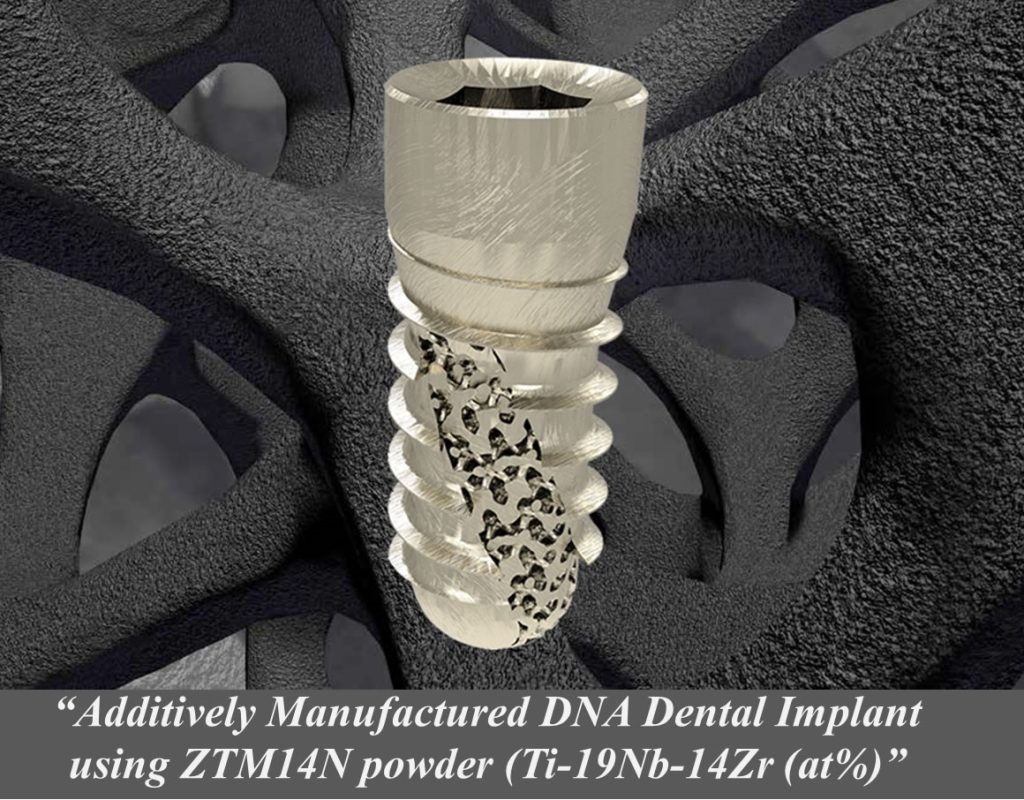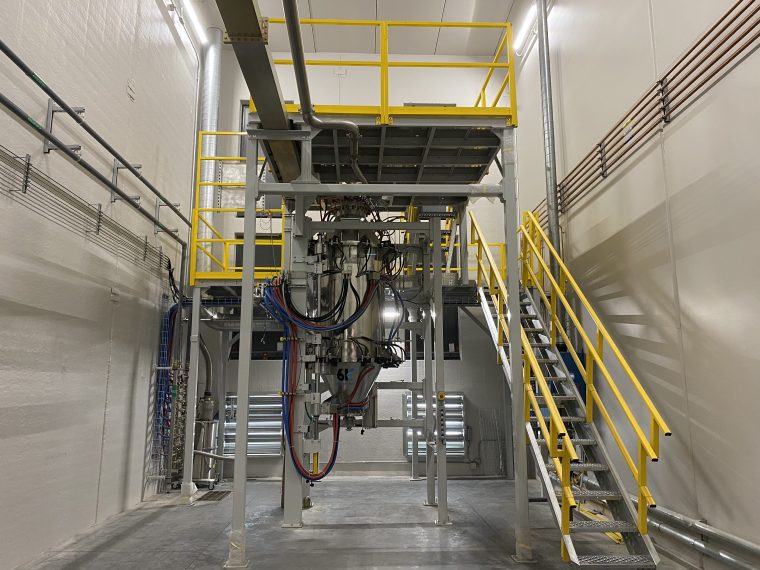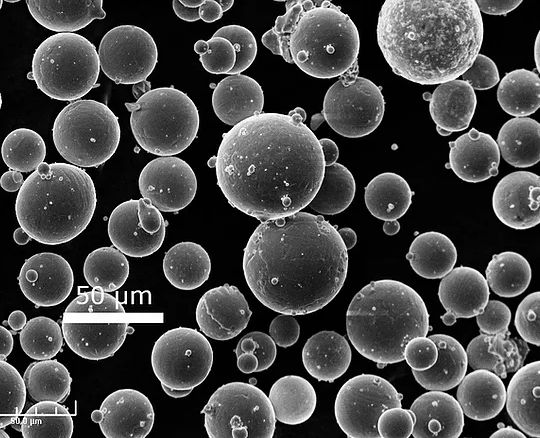Industrial 3D printing materials manufacturer 6K Additive has announced a partnership with France-based industrial metal 3D printing specialist Z3DLab. This collaboration will center around the production of Z3DLab’s advanced ZTi titanium alloys range.
6K Additive will utilize its UniMelt technology to process the ZTi alloys, producing spherical, dense powders for use in additive manufacturing. This process is said to deliver up to 100% yield, increasing the commercial viability of new material production. It is claimed that this collaboration will drive the production of new advanced 3D printing materials for use in medical implant and aerospace applications.
“Our ZTM14N material is unique for the medical implant industry and has tremendous growth opportunity in the space. However, we cannot afford to suffer the yield loss that is typical in the atomization process during production. We will be burdening the cost unnecessarily for our customers,” commented Z3DLab President Dr Madjid Djemai.
“6K Additive’s UniMelt delivers the required high yields of highly spheroidized powder that enables us to cost-effectively deliver our material to the market. This partnership benefits not only 6K Additive and Z3DLab but also the customers we serve,” added Djemai, who is also looking forward to future projects in the aerospace sector.

6K Additive’s UniMelt system
6K Additive’s UniMelt system uses a microwave plasma process, capable of converting chemistry machines milling, turnings, and recycled feedstock into industry-ready metal 3D printing powders. UniMelt’s highly uniform and precise plasma zone, with zero contamination, results in high throughput production of a range of additive manufacturing materials.
“Our UniMelt production scale powder manufacturing platform can process a near-infinite range of alloys thanks to its microwave plasma energy source and unparalleled controllability,” commented Francois Bonjour, European Sales Director for 6K Additive.
Key to the UniMelt process is its ability to use scrap, revert or used powder as feedstock. This eliminates the need for virgin material extraction, while simultaneously producing a higher quality final powder compared to traditional atomization methods. Z3DLab’s alloys can ultimately be reprocessed in this way, generating a circular economy for high-performance, high-value alloys.
“As a company dedicated to sustainability, we believe that the future of AM lies in high-performance alloys that can make lighter, stronger components with longer lifespans,” added Bonjour. “It only makes sense for Z3DLab and 6K Additive to partner to bring such an innovative material to the market with the quality and cost model to make it successful commercially.”

Z3DLab’s ZTi Powder range
The Z3DLab ZTi-Powder range includes materials optimized for both powder bed fusion (PBF) and directed energy deposition (DED) 3D printers. These powders are said to include specialized formulations that offer improved ductility, wear resistance and heat oxidation relative to Ti64
Materials in the ZTi-Powder range include ZTP10, a powder combining high strength and ductility with high fatigue and friction resistance; ZTP20Z, a PBF powder which combines Ti64 and Zirconium; and ZTP-DeD, an enhanced Ti64 powder designed for the maintenance repair and operations (MRO) industry.
Additionally, the ZTi-Med alloys range includes ZTM14N. This biocompatible titanium ternary alloy is designed to maintain a good strength-ductility ratio, while maintaining optimal elasticity.
ZTM14N offers an especially low elastic modulus of 38 GPa. This matches the elastic modulus range of human bone (~5-30 GPa), making ZTM14N especially well-suited to medical implant applications. Indeed, medical implants manufactured with this alloy possess an improved resistance to inflammatory species by almost 10 times, compared to alternative titanium alloys with a Bone Interference Contact (BIC) value of 95%.

Titanium 3D printing
Titanium 3D printing is certainly a growing area within commercial additive manufacturing.
Earlier this month, Montreal-based metal powder producer and plasma torch specialist PyroGenesis reported that it had received an order for five metric tonnes (5,000 kg) of plasma atomized titanium metal powders used in 3D printing. Though the exact identity of the client has not been disclosed, it has been confirmed to be a US-based advanced materials company. Moreover, the client has provisionally ordered an additional six tonnes (6,000kg) titanium powders based on its assessment of demand for more powders.
PyroGenesis VIce President Massimo Dattilo outlined that this is the first “By-The-Tonne” commercial order the company has received for its atomized powder titanium metal powders. “This represents our full entrance into the titanium metal powders marketplace,” Dattilo added.
Elsewhere, it was recently announced that US-based titanium developer IperionX will supply Ford with 100% recycled low-carbon titanium. This agreement forms part of Ford’s initiative to reduce its carbon footprint, having committed to achieve carbon neutrality by 2050.
“We are proud to partner with Ford to accelerate the deployment of a sustainable, circular titanium supply chain for the global automotive market,” commented IperionX CEO Taso Arima. “Our low-carbon titanium metal is uniquely made with 100% recycled titanium and can significantly improve automotive supply chains by using high-strength titanium components with nearly half the weight of steel.
Subscribe to the 3D Printing Industry newsletter to ensure you keep up with the latest 3D printing news. You can also follow us on Twitter, like our Facebook page, and subscribe to the 3D Printing Industry Youtube channel to access more exclusive content.
Are you interested in working in the additive manufacturing industry? Visit 3D Printing Jobs to view a selection of available roles and kickstart your career.
Featured image shows DNA dental implants 3D printed using ZTM14N powder. Photo via 6K.


